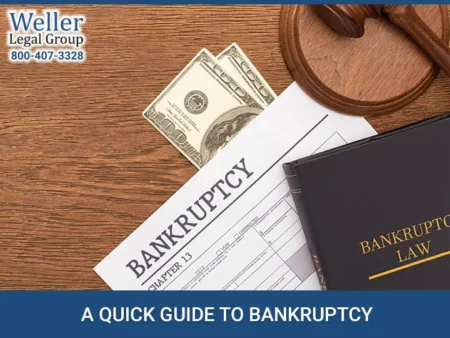 Bankruptcy isn’t a situation that anybody wants to be in. The main reason people file for bankruptcy is that their debt has gotten to the point that it can no longer be handled effectively, and often they are forced into making this move.
Bankruptcy isn’t a situation that anybody wants to be in. The main reason people file for bankruptcy is that their debt has gotten to the point that it can no longer be handled effectively, and often they are forced into making this move.
When debt becomes too overwhelming for a person or a business in Tampa, it is not always possible to continue making payments. Rather than suffering the severe long-term consequences of getting further into unmanageable debt, bankruptcy can seem like the preferable alternative.
Let’s look at a quick overview of bankruptcy, the reasons it might be denied, and the long-term implications of filing for bankruptcy.
What is Bankruptcy?
Bankruptcy requires legal involvement and cannot be done bilaterally between a debtor and a creditor. It enables an individual or company to get relief from significant levels of debt that they are unable to repay. Bankruptcy must be approved by a legal court in order to come into effect for an individual or a business.
In some cases, bankruptcy may be denied, although this is rare. There are several reasons why your bankruptcy case might be denied by a court.
Why Might Bankruptcy Be Denied by the Court?
There are a few reasons why a bankruptcy case may be denied, although most are accepted.
- Lack of honesty: Being dishonest while filing for bankruptcy could lead to your case being rejected. You should always maintain the truth when filing for bankruptcy and be honest about your earnings, your debt, and your personal details.
- Earning enough to repay debts: In some cases, a court might rule that the debtor is earning enough money to repay their debts. The disposable income of the debtor must be low enough for the court to rule that it is not possible for the debts to be repaid. You can contact legal advisors for a consultation before deciding whether or not to file for bankruptcy.
- Savings could repay the debt: Another reason why a bankruptcy case may be denied is when the debtor has enough savings to repay some or all of the debt. If this is the case, it might not make personal or financial sense to file for bankruptcy anyway.
The Long-Term Implications of Bankruptcy
There are several long-term implications that should be considered before anyone makes the decision to pursue bankruptcy.
- Poor credit score: Bankruptcy will stay on a person’s credit score in the US for up to ten years. This means that you are likely to be denied loans, credit applications, and other financial services during this time. The impact on your credit score is an important factor to consider since this could make it difficult to take out simple everyday services such as phone contracts and make it virtually impossible to get approved for a mortgage or loan. After the necessary time period has elapsed, it will take some time to rebuild your credit score to a healthy level.
- Not all debts can be erased:Some of your debts might not be erased despite your bankruptcy claim being accepted. This is something that you should look into before pursuing bankruptcy. For example, some student loans or child support payments may still need to be repaid even when you have declared bankruptcy.
Finding Legal Support to File for Bankruptcy
If you’re thinking about filing for bankruptcy in Tampa, it’s important to consider all the necessary factors and seek legal support where necessary. Finding the support of a legal professional like those at Weller Legal Group can help you to feel more supported as you take this difficult financial decision for you or your business.
Picture Credit: Crello

